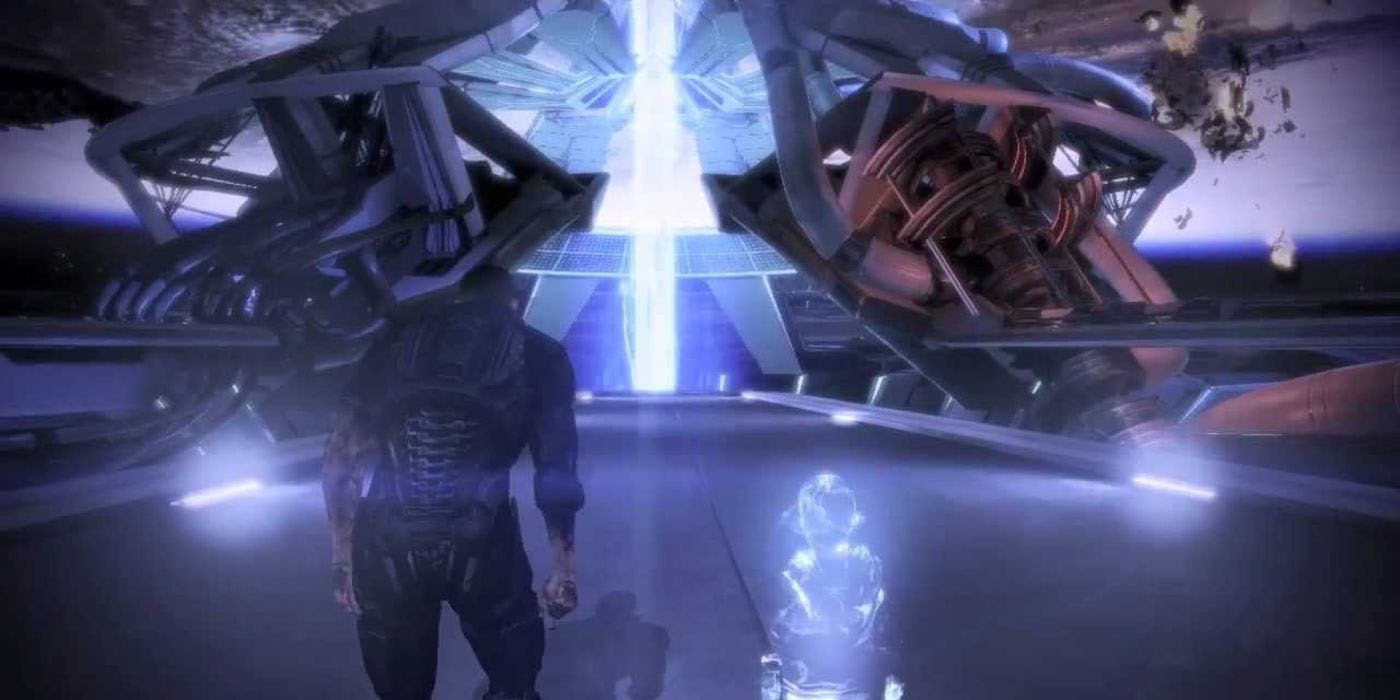One of the possible endings for Mass Effect 3 had Sheppard transfer their mind into a Reaper, but BioWare was originally planning to take things a step further and have the hero become the ruler of the machines after a confrontation with their “Queen.” Even nearly a decade after Mass Effect 3 was first released, the ending to BioWare’s sweeping sci-fi RPG storyline remains one of the most controversial in all of gaming.
Throughout the original Mass Effect series, the fully customizable Commander Shepard and their ever-growing team of allies were fighting to defend the Milky Way Galaxy from the Reapers, a race of AI-controlled warships whose goal was to eradicate all organic life. This culminates in 2012’s Mass Effect 3, where Shepard finds themselves face-to-face with the AI commanding the Reapers. This program explains the Reapers' mission of protecting organics from rebellion by synthetics and gives Shepard three options to stop the cycle of violence once and for all. The problem players took with this ending was that none of the three choices given provided proper closure to the story that they spent three entire games shaping through dialogue options and major narrative choices, and that the Reapers' motives and actions came across as nonsensical and hypocritical. The backlash to Mass Effect 3’s ending was swift and widespread throughout the Mass Effect fandom, and BioWare quickly worked to alleviate their outcry with the Mass Effect 3 Extended Cut, a DLC add-on that brought additional context to the original ending.
According to The Gamer, Mass Effect 3 was originally going to end very differently, with Commander Shepard coming face-to-face with a “Reaper Queen.” In a documentary on the People Make Games YouTube channel, Mass Effect 3 animation director Dave Wilkinson explains that Shepard would augment themselves with Reaper technology in an effort to understand the machines, so much so that they would eventually plug themselves into the main Reaper mind on the Citadel during Mass Effect 3’s climax. From there, Shepard would meet the “God of the Reapers” in a virtual space that Wilkinson compares to The Matrix. This “queen” would express that the Reapers' old ways were no longer viable and would offer Shepard the chance to bring peace by combining the Reapers with organic life. However, Shepard could reject this, with the ultimate Paragon option being to take control of the Reapers by ascending into what Wilkinson refers to as “the big king Reaper” to rebuild the galaxy.
Watch the documentary about Mass Effect 3 on YouTube here.
Players recently had a chance to relive Commander Shepard’s journey through the Milky Way galaxy in Mass Effect: Legendary Edition, a remastered collection of the original Mass Effect trilogy that included the Mass Effect 3 Extended Cut DLC as the default conclusion to the saga. During their sit-down with People Make Games, Wilkinson and several other BioWare developers noted the intense backlash they received in light of the original ending to Mass Effect 3, up to and including death threats, and that the Extended Cut required four long months of overtime crunch work to complete.
While the idea of Shepard either becoming a Reaper God or merging the Reapers with organic beings would ultimately be unused in Mass Effect 3, the ending Dave Wilkinson describes does bear some similarities with the finished game's Control and Synthesis endings. There’s no real way of knowing how fans would have reacted to the original Mass Effect 3 ending, but it likely would have sparked just as much debate and speculation as the one players experienced in 2012.
Source: The Gamer, People Make Games/YouTube

